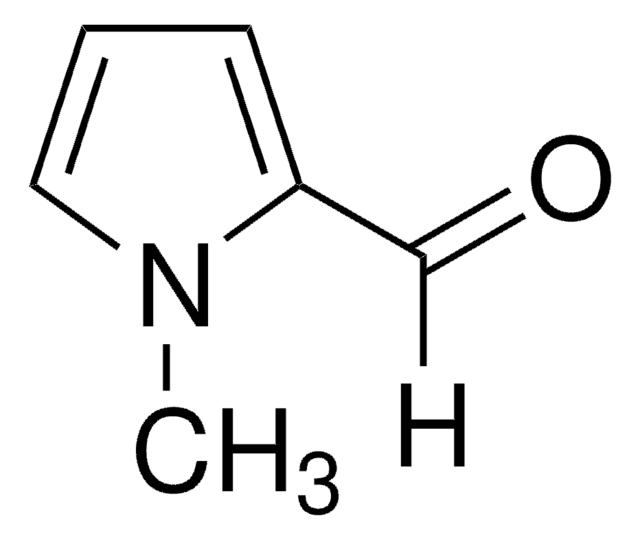241369
2-Phenylpropionaldehyde
98%
Synonyme(s) :
2-Phenylpropanal, Hydratropaldehyde
About This Item
Produits recommandés
Niveau de qualité
Pureté
98%
Forme
liquid
Indice de réfraction
n20/D 1.517 (lit.)
Point d'ébullition
92-94 °C/12 mmHg (lit.)
Densité
1.002 g/mL at 25 °C (lit.)
Température de stockage
2-8°C
Chaîne SMILES
[H]C(=O)C(C)c1ccccc1
InChI
1S/C9H10O/c1-8(7-10)9-5-3-2-4-6-9/h2-8H,1H3
Clé InChI
IQVAERDLDAZARL-UHFFFAOYSA-N
Vous recherchez des produits similaires ? Visite Guide de comparaison des produits
Application
Code de la classe de stockage
10 - Combustible liquids
Classe de danger pour l'eau (WGK)
WGK 1
Point d'éclair (°F)
174.2 °F
Point d'éclair (°C)
79 °C
Équipement de protection individuelle
Eyeshields, Gloves, type ABEK (EN14387) respirator filter
Certificats d'analyse (COA)
Recherchez un Certificats d'analyse (COA) en saisissant le numéro de lot du produit. Les numéros de lot figurent sur l'étiquette du produit après les mots "Lot" ou "Batch".
Déjà en possession de ce produit ?
Retrouvez la documentation relative aux produits que vous avez récemment achetés dans la Bibliothèque de documents.
Les clients ont également consulté
Notre équipe de scientifiques dispose d'une expérience dans tous les secteurs de la recherche, notamment en sciences de la vie, science des matériaux, synthèse chimique, chromatographie, analyse et dans de nombreux autres domaines..
Contacter notre Service technique










